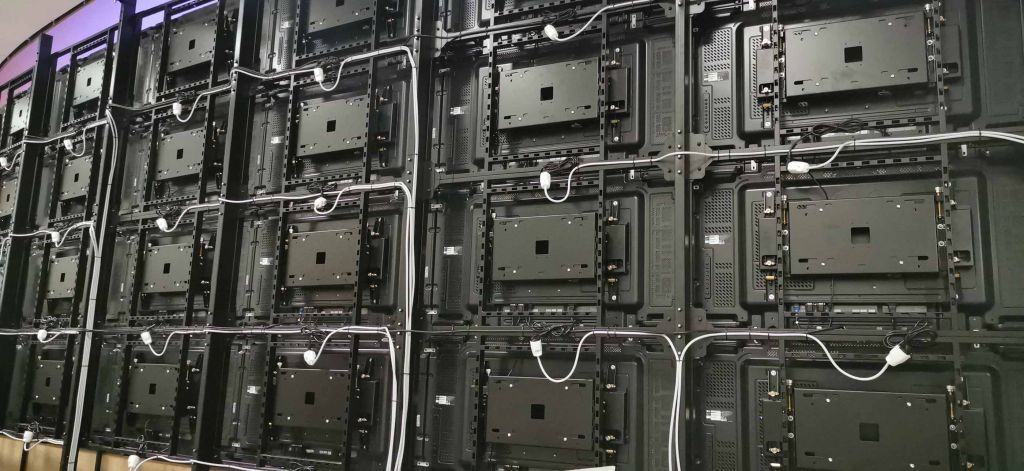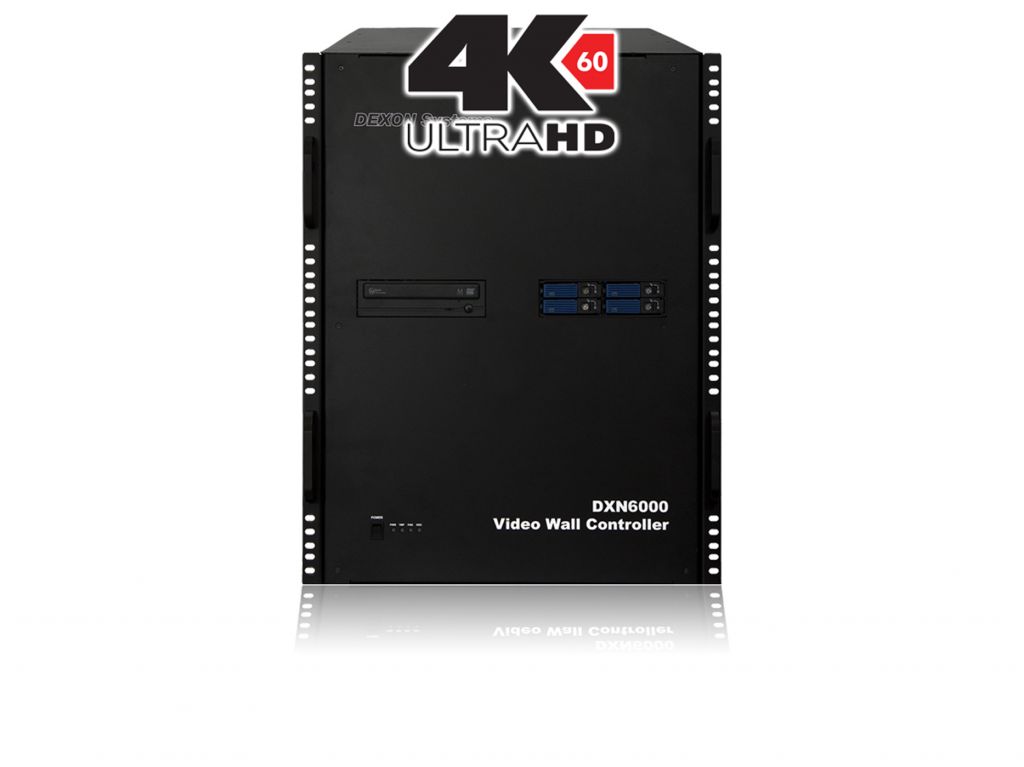What does an audio visual equipment supplier do?
Having access to the best audio-visual equipment is part of creating an impressive and dynamic presentation, but how do you make sure you have the right equipment? One of the best ways to ensure you have the best equipment for your display is to recruit the help of a reputable audio-visual supplier who can help you secure the best quality equipment for your presentation.
If you’re not quite sure what an audio-visual equipment supplier is or what value they have, then you’re in the right place. At DEXON, we ensure our customers have access to the best quality display equipment, so they can create impressive displays that wow their audience.
We’re proud to be a reputable and reliable supplier of audio-visual systems, so that’s why we’re here to tell you what other audio-visual suppliers and we can offer you.
In this article, we discuss what an audio-visual equipment supplier does, their key skills, what type of services they provide a business and why suppliers are so critical in the 21st century.
Who is an audio-visual supplier?
An audio-visual equipment supplier is an individual or company that supplies and sets up audio-visual equipment for display and presentation systems. These professionals have comprehensive knowledge of audio-visual systems and the necessary equipment for an optimal display; helping users improve their operation with the correct equipment.
These professionals typically design unique system organization to suit the specific needs of the user and their presentation. This means that most users will receive customized systems that are designed to help reach the presentation’s key objectives.
Audio-visual equipment suppliers can specialize in different types of AV equipment, such as supply of video wall equipment like matrix switchers, video wall processors and video wall controllers. Whereas others may provide more comprehensive services and supply everything from conference calling equipment to microphones for large events.
As well as supplying this important technology, audio-visual suppliers typically install these systems for their clients, helping to educate them on the proper use of AV systems. This helps users get the best out of their equipment, allowing them to create impressive and dynamic displays!

What are the most important skills and knowledge that an AV equipment supplier needs?
As with most jobs, audio-visual equipment suppliers need a vast list of skills and knowledge to be able to complete their tasks. Firstly, these professionals need in-depth knowledge of the value of audio-visual systems. This includes understanding exactly what they do, why, and how this can improve a presentation.
Secondly, AV suppliers need to know which type of presentations require which equipment. This involves being able to differentiate between demanding and relatively simplistic displays. Demanding displays typically require the most systems to help manage multiple functions and large display sizes.
Moreover, an AV supplier needs to know how to use AV systems to meet their client’s project objectives. To do this, the supplier needs to know how each system contributes to the project, including their primary functions, benefits, and what each system allows the user to do. For example, if a user aims to have remote control over their video wall, then an AV supplier needs to know which systems facilitate remote operation. This is a key factor of customer satisfaction.
Finally, an AV supplier needs to understand how to install AV systems and how to ensure that AV technology is scalable to the user’s needs. For example, the supplier will need to ensure that the equipment is able to grow with the user, such as increase in demand, operation time or increase in size of equipment, such as a larger video wall.
At DEXON, we pride ourselves in the ability to provide our customers with equipment that can grow and adapt to their needs. So, you don’t need to worry about not being able to scale your content when you invest in one of our products!
As you might imagine, AV suppliers need lots of skills to be able to complete their primary responsibilities. Here’s a list of some of the skills you might need if you’re interested in becoming a supplier:
- Technical skills
- Customer service
- Problem-solving
- Troubleshooting AV errors
- Maintaining systems
- Software operation
- Connecting, preparing, and positioning systems
- Knowledge of cabling and control systems
- Conferencing and broadcast system expertise
- Project management
- Risk assessment

What does an audio visual supplier provide to businesses?
Here’s a guide to some of the supplies that AV specialists and suppliers may offer:
1. Control systems
AV control systems refer to technology that takes on the majority of the controls in a project. Essentially, these systems are the brains behind a project and help users process signals, display content, add effects and improve quality. Control systems primarily refer to a single interface that allows users to conduct all of their operations from a single source.
2. Displays
Audio-visual suppliers can also help their clients with all of their display needs. Typically, these displays will depend on the user’s individual project needs, but these can refer to large monitors or even video walls. Video walls are a collection of screens that work in unison to act as a single surface.
These walls can vary in size, usually starting at 4x4 and working up to 172x44. We use video walls in an array of settings, from office spaces and conference rooms to entertainment settings like stadiums or music festivals.

3. Video collaboration systems
Video collaboration systems refer to technology that facilitates things like online conferencing. This technology allows multiple operators, users and guests to interact via technological means, providing an in-person experience in remote settings. These collaboration systems typically use web-based browsers and audio-visual equipment to create an interactive experience for all!
Why is this job essential in the 21st century?
The modern world means that technology dictates most of our daily lives. Think about it, most of us consume our entertainment, news, and work with the help of technological systems, so we can’t get by without the help of professionals who specialize in supplying equipment to correspond with this.
The production value of entertainment events, conferences and tradeshows has increased significantly, so we need dedicated professionals to ensure that the quality of systems meets the consumer’s expectations.
Live events are extremely popular, and with this comes a high attendance rate. With potentially tens of thousands of people attending live events, it's important to have the correct audio-visual equipment to accommodate this. That means having screens and video walls of the correct size, microphones, sound systems and generators to facilitate that amount of energy use.
Additionally, technology and audio-visual equipment has become more integrated with our workplaces, with many offices and critical control rooms now relying on video walls and display units for their communication. Therefore, audio-visual equipment suppliers are crucial to the seamless operation in many essential industries.
So, this job is absolutely essential in the 21st century, as so many of our daily routines, entertainment habits and events rely on the optimal supply and consumption of audio-visual displays and equipment.

